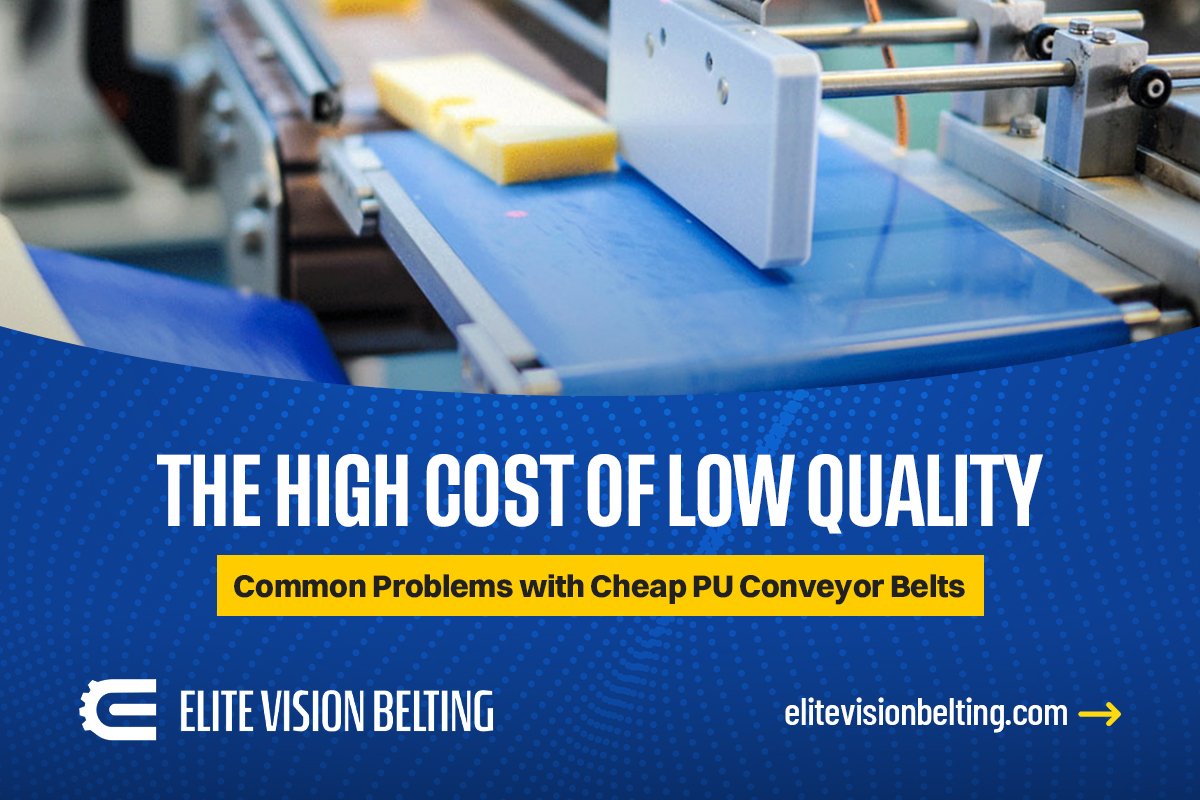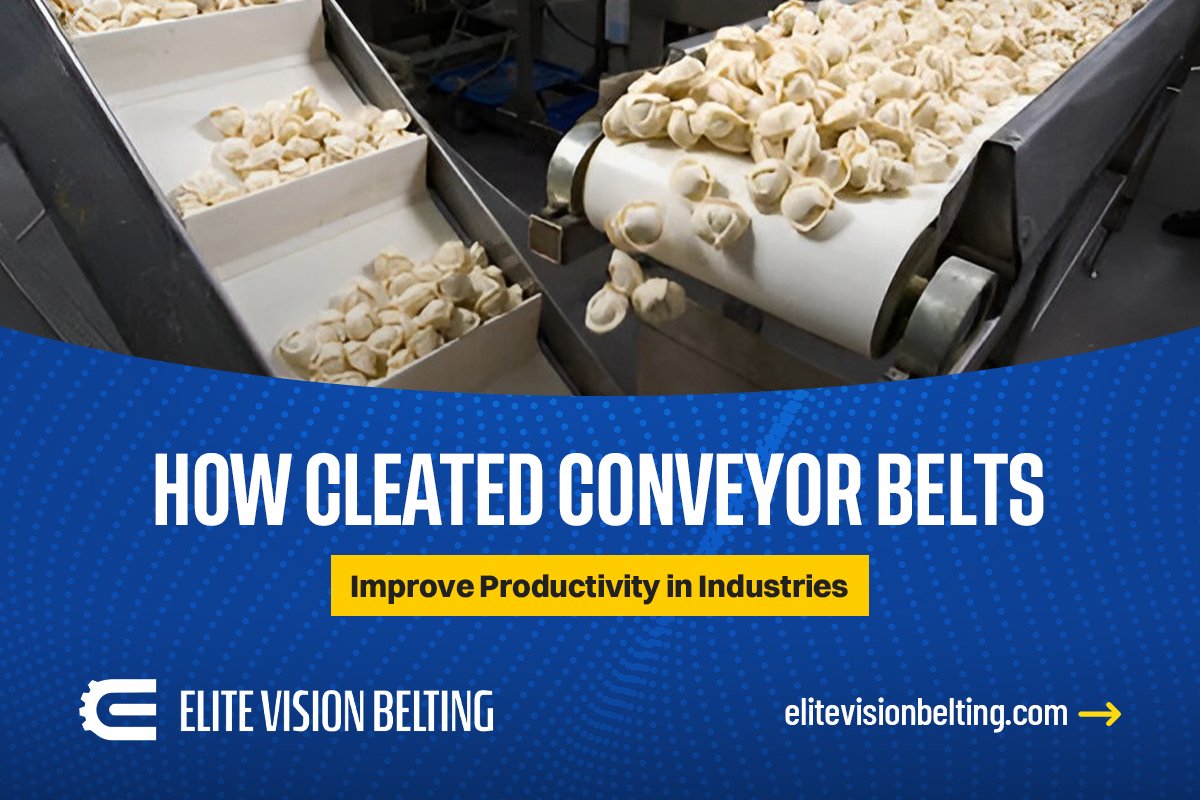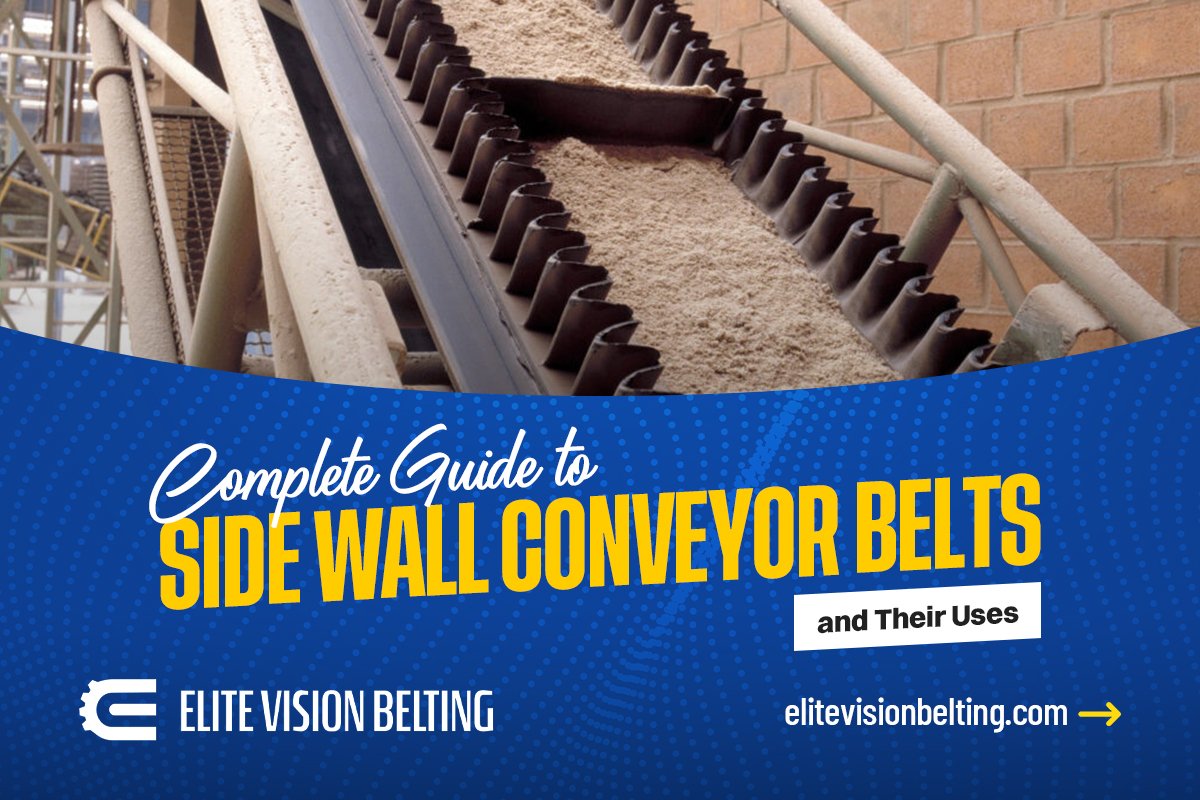Conveyor belts are the instruments that are used to transport the material from one place to another place in the factories for the production. And this smooth transportation of material totally depends on the thickness of the conveyor belt because the belt thickness is directly related to the weight it can carry for the movement. So, in the industries that deal with huge and heavy material, such as the plywood industry and the marble manufacturing industry, where the heavy panels move from one place to another, the conveyor belt thickness should be considerable to ensure the safe handling of material and to avoid the unnecessary wear and tear and damage.
Importance of the proper belt thickness of the conveyor belt for the plywood industry:
This strength and durability is directly related to the belt thickness. And huge industries such as the plywood industry, which deals with the heavy wooden panels for the movement from one place to another, require a generous amount of belt thickness, nearly about 8-12 mm, for the smooth and efficient transportation of huge and heavy wooden panels. Belt thickness is a crucial factor to keep in mind while choosing the right conveyor belt because belt thickness prevents the unnecessary wear and tear to the conveyor belt such as cuts, scratches, and punctures, which are caused by the weight of the material. Moreover, the belt thickness also ensures the even and safer loading and unloading of the heavy material and avoidsdamage to both the material and the conveyor belt for the efficient and effective working. Additionally, belt thickness also maintain the quality of the wooden panels in the plywood industry because even a minor cut or scratch on the wooden panels while transporting the material can destroy the quality of the panels and cause financial loss to the plywood industry, but belt thickness tackle this issue with significant efficiency.
Benefits of optimum belt thickness:
1. Proper belt thickness greatly helps in handling the heavy loads of the huge industries.
2. More Belt thickness means more strength and a longer lifespan of the conveyor belts.
3. Belt thickness also helps in preventing the unnecessary wear and tear to belt and material while moving.
4. Significant belt thickness also helps in maintain the quality of the material being
5. Transported through the conveyor belt.
6. Belt thickness also prevents the edge wear and surface wear on the belt.
7. Proper belt thickness ensures the smooth and uniform movement of the material.
8. Ideal belt thickness also boosts productivity with efficiency and effectiveness.
Factors to consider while choosing the right belt thickness in the plywood industry:
Weight of the load: The major factor while choosing the correct belt thickness is weight of the load which have to move from one place to another because its the belt thickness which handle all the weight of the loads for proper transportation. And, in the plywood industry, they generally have to handle the huge and heavy wood panels due to which they need considerable belt thickness for nearly about the 8-12 mm for smooth transportation of the material.
Strength and durability required: The significant strength and longer durability is demand if each and every industry while making investment in the conveyor belts and this lifespan and strongness of conveyor belt is directly related to the belt thickness, more belt thickness ensures the more strength and durability. In the plywood industry, the outstanding strength and durability is much need to handle the wooden panels by maintaining its quality while uniform movement.
Size of the load: The size of the load is also important factor while choosing the right belt thickness because if the belt thickness is not according the size of the load then there are high chances of causing of damage to the belt and even to the material being transported. Proper belt thickness greatly helps to avoid the unnecessary wear and tear to belt and material. And, in the plywood industry normally the size of the load is huge so the selection of the belt thickness should accordingly.
Number of plies in the belt: The belt thickness is dependent on the number of plies which generally meaning the number of layers of the conveyor belt material while manufacturing the belt. The more number of layers indicates the generous belt thickness which further also ensures the great strength and durability because the belt thickness increases the strength and durability of conveyor belts.
Material of the belt: The material is used while manufacturing the conveyor belts also being considered for the ideal belt thickness because there are numerous kinds of material used for the conveyor belts such as PU (polyurethane), PVC (polyvinyl chloride), and rubber and side wall conveyor belts, and many more while each and every material have different level of belt thickness. However, the PU conveyors have considerable belt thickness along with strength and durability which is ideal for the plywood industry.
Workplaces environment: This belt thickness should also be according the working conditions prevailing at the workplace. The working environment includes the temperature level, humidity level and working with the chemicals and acids. Belt thickness should be according to these factors in other words the belt thickness should be resistant to the temperature and chemical being used at the workplace.
Easy maintenance and cleaning: The maintenance and cleaning is also a vital factor while choosing the belt thickness because cleanliness and hygiene is essential and belt thickness should be accordingly that it can be easily maintained and cleaned. Moreover, the regular maintenance and cleaning also maintain the belt thickness and longer its durability
Consequences of incorrect belt thickness:
1. Unnecessary wear and tear to the material and belt.
2. Cuts and scratches to the material which destroy the quality of material.
3. Sometimes it also damage the pulley and roller of conveyor belts such system.
4. Chances of damage on the edges of conveyor belt.
5. Uneven loading and unloading of material.
Conclusion:
In conclusion, the belt thickness is important factor while selecting the conveyor belts because the strength and durability of conveyor belts is totally dependent on the belt thickness. Moreover, the belt thickness ensures the even load and unloading of heavy material and their smooth movement without causing any kind of wear and tear. Thus, belt thickness boost the productivity with efficiency and smooth transportation of heavy material.
Get Expert Help Choosing the Right Belt Thickness, contact Elite Vision Belting today





